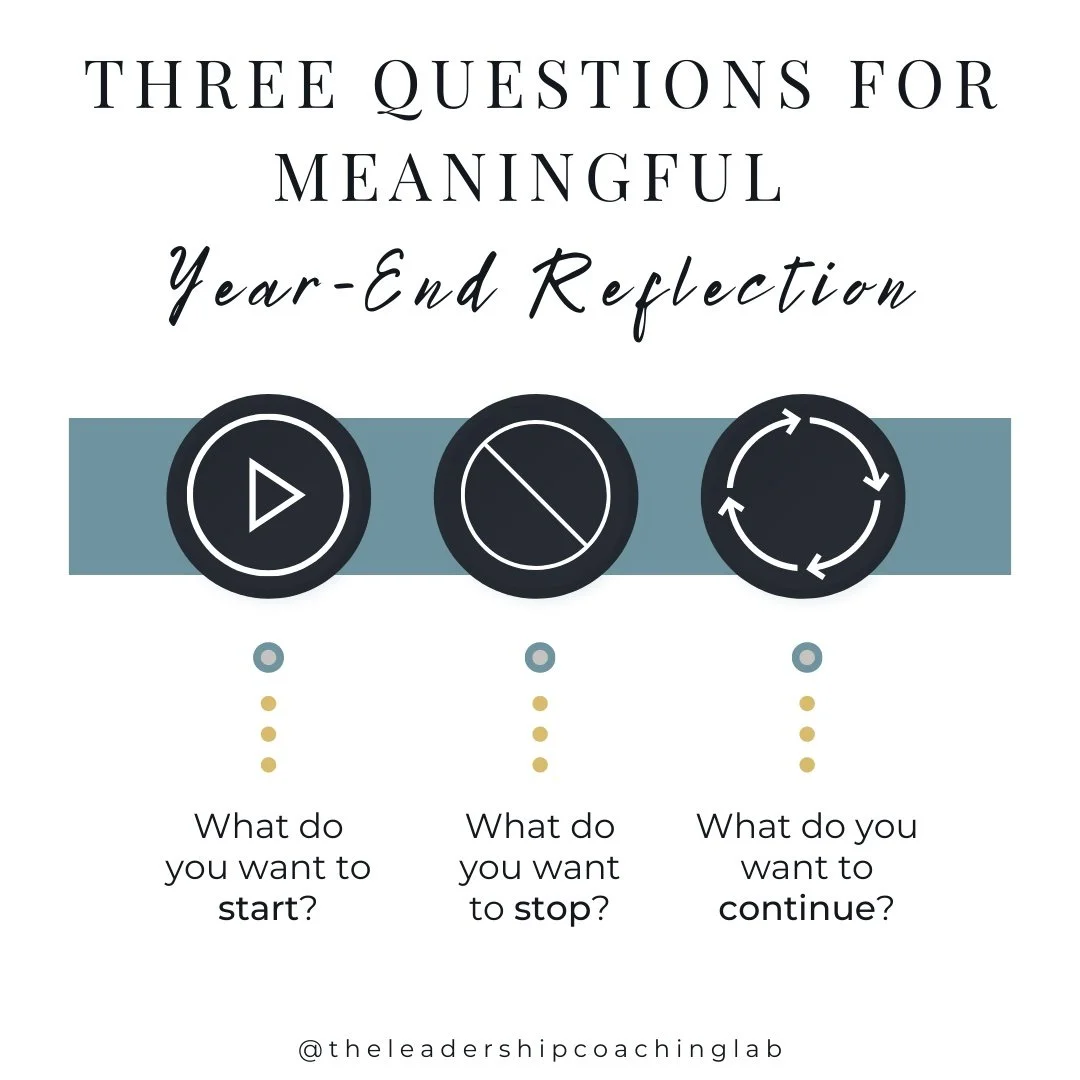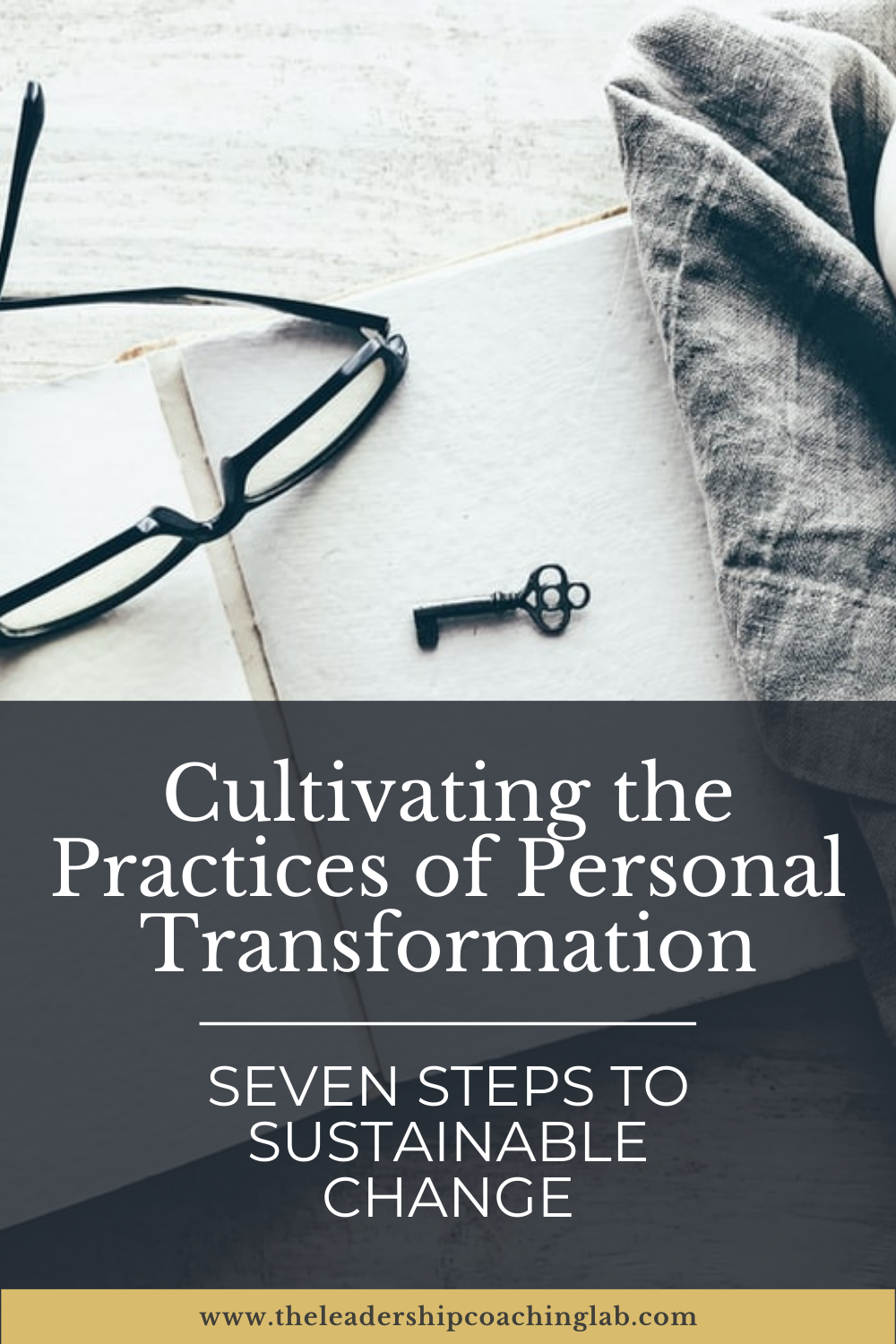3 Tools for Self-Reflection
Reflective thinking turns experience into insight.
-John C. Maxwell
Have you ever reached a turning point and felt unsure about what comes next? Maybe it’s finishing a big project, stepping into a new role, or realizing life has gotten so busy that you’ve lost sight of what matters most. These transitions can feel unsettling—but they also hold incredible potential.
The key is reflection. Pausing to ask the right questions doesn’t just help you process what’s behind you; it sharpens your focus for what’s ahead. Without reflection, you risk carrying old habits, unhelpful patterns, or missed opportunities into your next season. With it, you create space for clarity, alignment, and intentional action.
Using a reflection framework can help turn your next transition into a meaningful reflection opportunity. The reflection tools here can serve as either a starting point for inspiration or as a guide throughout the process:
1 - Values Assessment
Reflection becomes more intentional and strategic when we have our values in view. Values serve as a compass to help us assess our life decisions with greater clarity.
If you haven’t done a values assessment, consider completing this exercise from Brené Brown: Living into Our Values. Make sure to grab the free pdf download that includes a values sorting activity and a series of reflection questions.
Once you have clarified your values, turn to these questions in times of transition:
How did I live out my values during this [month / year / event]?
Get specific here: name activities, events, accomplishments, and behaviors.
When, where, and why did I step out of alignment with my values?
This is an important point to retrace your steps and identify your most common derailers.
Which of my values were most frequently in conflict?
When we feel stuck in moving forward, identifying our most common values conflicts is a powerful first step in navigating the tensions.
Which goals, activities, or behaviors will help me to live more fully into my values?
Decide which values-based goals, activities, & behaviors you want to add or increase.
2 - Start, Stop, & Continue
What do you want to start? What new thing will bring fresh energy, new perspective, and purposeful progress?
What new habit will help you live out your most important values?
Who do you need to add to your community of support?
What opportunity will help you to play to your strengths?
What do you want to stop? What old thing do you want to leave behind?
What mindset is limiting your potential?
What habit, behavior, or commitment is draining your time, energy, or resources?
What do you want to continue? What purposeful or productive thing do you want to keep doing?
What brings you the greatest energy?
What has been most effective or successful? How can you do more of that?
3 - Appreciative Reflection
Traditional reflection models often take a problem-solution approach and address how we can improve in specific areas. Appreciative inquiry (AI), established by David Cooperrider, is an alternative approach to exploring the best in a situation, organization, or community through intentional, positive questions. Cooperrider explains more about Appreciative Inquiry in this short video.
The Appreciative Inquiry 4-D model can be applied using four phases, including:
Discovery: Exploring what is working well
Dream: Envisioning what could be
Design: Planning what should be
Deploy: Determining the path forward
The 4-D model is excellent for organization or team planning, but the principles can also apply to individual reflection or conversations. The questions below are a great starter list to ask for a year-end review, or to use as individual writing prompts.
Appreciative Reflection Questions for Year-End Review
When you were at your best this year, what did it look like?
What gave you the most energy or fulfillment?
Which of your accomplishments was a shining success this year? What made it successful?
What strengths did you use the most often?
What was the most amazing team experience you had? What made this experience so positive?
How have you grown or made progress this year? What contributed to that growth?
How can you keep building on the progress you’ve made?
If you could shape your role in the future to be the most fulfilling and successful, what would that look like?
Get the Complete Toolkit to Inspire Growth & Change
Get my free 60-page ebook featuring my 8-step process for growth and 80 powerful questions for coaching or reflection - designed for leaders, coaches, & personal growth enthusiasts.
You'll also join 2,000+ professionals who receive The Coaching Mindset, my newsletter for practical tips to inspire intentional growth and tools to take a coach approach.







